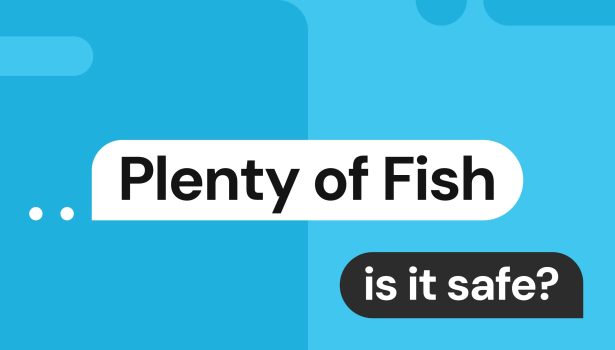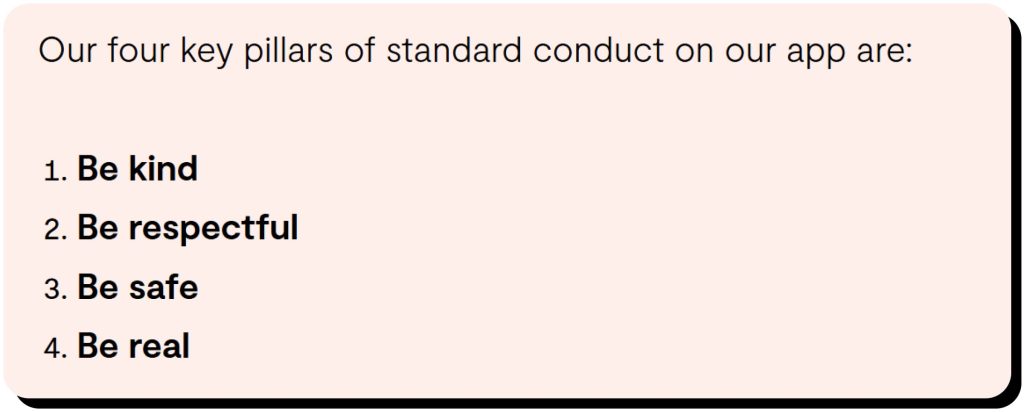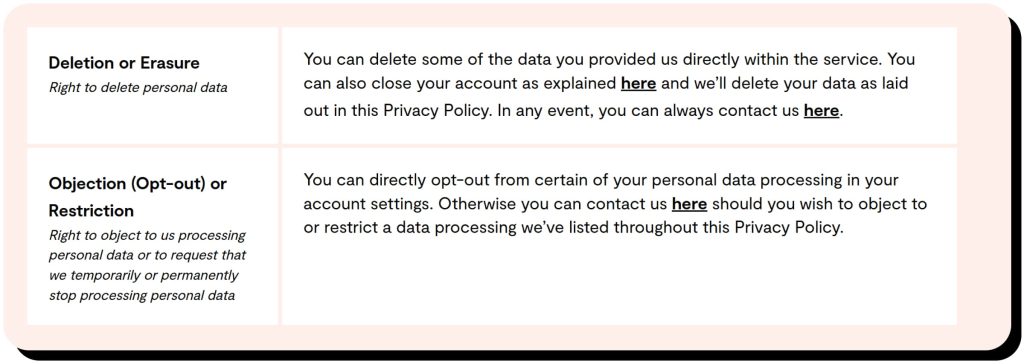Is Plenty of Fish safe to use in 2025? Here’s what to know about its safety features and scams

Plenty of Fish is safe to use—as long as you keep an eye out for suspicious activity and avoid sharing sensitive information. Like other dating apps, it’s got the usual assortment of catfishers, romance scammers, and other dubious types.
Plenty of Fish’s safety features include selfie verification, automated content monitoring, advanced message filters, and reporting tools. The platform also partners with Noonlight and Crisis Text Line to add an extra layer of protection. That said, your safety ultimately depends on how you use it: avoid sharing personal details, don’t send money or explicit images, and stick to in-app messaging until trust is firmly established.
What is Plenty of Fish?
Plenty of Fish (POF) is a long-running online dating website and app. Known for its large user base and a reasonably high level of access through the free version, it aims to help people form romantic connections through detailed profiles, compatibility matching, and various communication tools. Although it’s not quite up there with Tinder or Bumble, Plenty of Fish sits easily in the top ten. As recently as 2023, it sat in 3rd place for one of Statista’s measurements of dating app popularity.
There are two main things that people typically wonder about dating apps, aside from whether they’ll meet the love of their life: 1) What type of people are on the app, and 2) What are those people mostly looking for? When it comes to Plenty of Fish, around 2/3 to 3/4 of users are men, and there’s a fairly wide representation of ages on the app. In fact, Mashable listed POF as the best app “for exploring a diverse dating pool.”
The app’s own blog has some interesting data around music preferences and how they influence matches within the app’s community, with country music-loving men getting 32% more messages and metalhead women getting 9% more messages than average.
Regarding people’s relationship intentions, finding such clear data isn’t as easy. However, there’s one group that’s definitely not looking for anything long-term, and that’s the scammers. Legit users who’ve been on the app for a while have noticed that the user base has changed (many would say “degraded”) over the years. A large number of profiles appear to be fake as more and more scammers turn to dating apps for phishing.
Is Plenty of Fish legit?
Yes, Plenty of Fish is a legitimate dating platform. Just because there are non-legit users, that doesn’t mean that the entire app is built for any nefarious purpose. “Be Real” is one of Plenty of Fish’s community guidelines; it just happens to be ignored by those seeking to make a quick buck at someone’s expense.

Plenty of Fish has been around for quite a long time. Founded in 2003 by Canadian entrepreneur Markus Frind, it got a lot of attention in 2009-2010 when it started showing up in music videos by Lady Gaga, Kesha, and other pop stars. Match Group, owner of Tinder and OKCupid, bought POF for $575 million in 2015.
Is Plenty of Fish safe to use?
POF is safe for anyone who’s aware of the common risks that all dating apps share (fake profiles, harassment, romance scams, etc.) and who knows the red flags to look for.
To combat the issues, the company has a set of protocols designed to protect users from scams and social engineering. These include:
- Strict guidelines for your profile photo. Per the POF profile guidelines, you’re not allowed to use heavily edited photos or group photos as your main image, and you also can’t show nudity. Your face should be clearly visible and recognizable.
- Selfie authentication. To confirm you’re the person in your photo, you’re required to take a real-time selfie, which is then compared to your profile photos using facial recognition. Of course, fraudsters are finding ways to bypass this obstacle, but the authentication systems are working hard to always stay one step ahead.
- Content monitoring. POF reviews your photos, bio, and messages—both manually and using automated systems—to detect and block inappropriate content or spam. For example, the app automatically detects suspicious behavior like mass messaging.
- Reporting. If you’re experiencing harassment, scams, or inappropriate behavior, you can report this to the company. POF will never divulge this to the person you’re reporting.
Additionally, Plenty of Fish makes it impossible to browse with full anonymity without paying a premium to help prevent stalking. This means that you’ll usually be able to see who viewed your profile.
Through its parent company Match Group, Plenty of Fish also has partnerships with connected safety platform Noonlight and the Crisis Text Line.
Privacy controls
Plenty of Fish gives you control over your privacy, even though they do ask for quite a bit of information at the start—including your hobbies, income, and more. This is how the company is able to give you extremely granular search options.
Users can be reassured that their email addresses, real names, and locations will never be shown publicly, and they can hide their profiles from search results and profile views. You can set advanced message filters to avoid hearing from people of a certain gender, age, or physical distance from your location.
POF’s privacy policy states that you can have the company delete some of the data you’ve provided. If you close your account, most of your data will be removed, aside from whatever may be needed for legal purposes.

The Match Group’s face recognition AI training controversy
A few years ago, Match Group got itself in hot water for allegedly allowing a facial recognition company to train on dating app users’ photos without their consent. Although the Match Group-owned app in question was OKCupid and not POF, it’s just not a good look for privacy in general.
This plays into a larger conversation around the use of AI and extensive data collection done by dating apps, with a push for companies to move towards an opt-in model rather than expecting their user bases to know they should opt out.
Common scams and risks on POF
No matter how excited you are about a budding relationship on the app, keep your senses engaged so you can recognize the following scams for what they are.
- Catfishing. Scammers will use stolen or AI-generated photos depicting attractive people to make you think you’ve scored big. They’ll often say their profession involves working abroad, so that’s why they can’t meet in person. They’ll also come up with reasons not to video chat either. Some earn your trust to then ask for high-value gifts, others do it for personal satisfaction or revenge.
- Romance scams. Similar to catfishing, but perhaps without model-esque photos. A scammer will love-bomb you and then try to make you feel sorry for whatever life challenges they’re supposedly going through. They’ll say they need help with medical bills, legal fees, or travel expenses.
- Phishing scams. These hunt for your personally identifiable information (PII) or access to your device and accounts. Scammers will either ask you personal questions or send links containing malware. In some cases, the phisher might pretend to be someone on the Plenty of Fish team rather than one of the app’s users.
- Investment and crypto scams. Seems like nowadays no social media or dating site is complete without someone trying to get you to make dubious investments. In this scheme, scammers will pivot to telling you about a “once in a lifetime” opportunity to invest in a foreign exchange or a cryptocurrency. Once you “invest,” the scammer disappears, and your money is just plain gone.
- Sextortion. This is one of the most nefarious dating app scams. Scammers dupe people into thinking they’re in a promising relationship and then pressure them to send nudes or otherwise compromising photos. Once these photos are sent, the scammer will threaten to send them to people who matter (friends, family, employer) unless the victim pays an exorbitant sum of money.
What to do if you’ve been scammed on POF
Discovering that you’ve been scammed on Plenty of Fish can be a deeply unsettling experience, leaving you feeling shocked, betrayed, and unsure of what to do next. Whether it involved emotional manipulation, financial loss, or the misuse of private images, here are the steps to take:
- STOP talking to the scammer. Not another word.
- Start gathering evidence. Screenshot everything: conversations, photos, online banking transactions, and the scammer’s profile.
- Report the scammer. Report them on POF’s in-app reporting system and to the FBI’s Internet Crime Complaint Center (IC3).
- Call your bank. The sooner you do, the more likely you’ll get your money back.

If you’re reeling from deception and heartbreak, seek out mental health support. The emotional bait-and-switch of a romance scam or sextortion can be very destructive, and a counselor can help you process what happened.
Tips to stay safe on Plenty of Fish
It’s easy to get carried away on dating apps, especially when everything seems to be coming up roses. However, it pays to be skeptical. Here are some things you should do to protect yourself:
- Keep sensitive info private. No giving away your home address, full legal name, where you work, or any other personal details.
- Avoid sharing explicit photos. This makes you vulnerable to sextortion. Don’t send nudes even if they send some first.
- Never send money. It’s an immediate red flag if someone asks for money, expensive gifts, or to pay their bills.
- Keep communications on the platform. Don’t go over to another messaging app, no matter how convincing their rationale may be. They just want to get away from POF’s monitoring.
- Reverse-image search their profile picture. If it’s stolen, this will point you to the original source or other scammy profiles with the same photo. It’s also a good idea to ask them to do a video chat.
- Look for holes in their story. But keep in mind that even a very detailed story with NO HOLES or inconsistencies can still be fake. One man was scammed out of more than $50K via POF due to a scammer’s convincing narrative.
- Adjust privacy settings and app permissions. The harder you make it for people to find you or contact you, the fewer scammers will bother to try.
- Opt out of people-search sites. These publish a great deal of your personal data like home address, relatives, interests, and more. These details help scammers approach you with a relatable story and earn your trust. You can remove yourself manually or rely on an automatic service like Onerep.
Most importantly: stay skeptical! Keep your guard up, stay in control of what you share, and remember—you deserve a connection that’s both genuine and respectful.
FAQs
What is POF?
POF is a dating site and app, created in the early 2000s and now owned by Match Group. It offers both free and paid membership options, and is especially popular among users in their 30s and older.
Is POF a good dating site?
Opinions around POF’s quality and effectiveness vary widely, but it appears that current users have to contend with a significant number of scammers and fake profiles. Nevertheless, for users who are cautious, patient, and willing to navigate some digital clutter, POF can still be a worthwhile place to make real connections.
Is POF safe for meeting someone in person?
As with all dating platforms, it’s advised that people who meet on the Plenty of Fish dating app for the first time do so in a public place and inform their friends and family of their meetup plans. While Plenty of Fish is a safe platform, not all users on it are.
Is Plenty of Fish free?
POF allows you to sign up, browse profiles, and send a limited number of messages for free. A subscription unlocks features like unlimited likes, read receipts, incognito browsing, ad-free use, and boosted visibility in search and messaging.
How does Plenty of Fish work?
Plenty of Fish works by helping users create detailed dating profiles and connect through features like compatibility matching, search filters, and private messaging. After signing up, users answer questions about themselves and their preferences, which the app uses to suggest potential matches.





Mark comes from a strong background in the identity theft protection and consumer credit world, having spent 4 years at Experian, including working on FreeCreditReport and ProtectMyID. He is frequently featured on various media outlets, including MarketWatch, Yahoo News, WTVC, CBS News, and others.